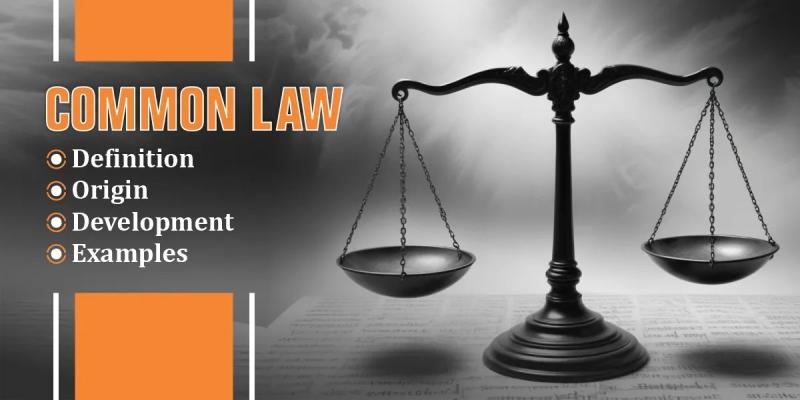Understanding Common Law: Definition, Origins, and Key Examples

Common law is a foundational legal system that shapes much of the modern
world’s legal frameworks. It’s primarily based on court rulings, judicial
decisions, and precedents, rather than relying solely on written statutes or
codified laws. This legal tradition originated in medieval England and spread
to various countries that were once part of the British Empire, including the
United States, Canada, India, and Australia. Today, common law continues to
play a vital role in shaping the legal landscape of many nations.
What is Common Law?
At its core, common law refers to a legal system where the law is developed
by judges through court decisions, rather than by legislative statutes. These
rulings create precedents—decisions that guide future court cases with similar
facts. A key feature of common law is the doctrine of stare decisis,
which means “to stand by things decided.” Under this principle, courts are
bound to follow precedents established by higher courts in previous cases. This
ensures consistency and predictability in the legal system.
Origins of Common Law
Common law has its roots in England after the Norman Conquest of 1066. Prior
to this, the legal system in England was fragmented, with local customs and
laws varying from region to region. William the Conqueror sought to unify the
legal system, and royal judges were sent out to apply the same laws across the
country. These judges would hear cases, make decisions, and create legal
principles that could be applied in similar cases throughout the kingdom. Over
time, this body of law, developed through judicial decisions, became known as
common law.
Development of Common Law
As English society evolved, so did its legal system. Judges began recording
their decisions, and these rulings became references for future cases. Over
centuries, the common law system expanded beyond England and was adopted in
many countries influenced by British rule. Even today, common law systems
continue to evolve. For example, in the United States, common law is integral
to the legal process, and court decisions play a significant role in shaping
laws alongside statutes passed by legislators.
One of the distinguishing features of common law systems is their
flexibility. Courts can adapt legal principles to new situations and social
changes, making common law dynamic and responsive to the needs of society. This
flexibility contrasts with civil law systems, which rely on comprehensive legal
codes and leave less room for judicial interpretation.
Key Examples of Common Law
Common law principles apply to many areas of law, including:
1. Tort
Law: Tort law addresses civil wrongs or injuries that one person may
cause another. Negligence, defamation, and product liability are examples of
tort cases decided under common law principles.
2. Contract
Law: Common law plays a crucial role in shaping contract law, where
agreements between individuals or entities are enforced by courts. Contracts
are binding, and if one party breaches the agreement, common law helps
determine the consequences.
3. Property
Law: Common law governs various aspects of property rights, including
ownership, transfer, and inheritance. These legal principles are often derived
from centuries-old judicial decisions.
4. Criminal
Law: While criminal law is typically governed by statutes, common law
also influences certain aspects of criminal justice, such as legal defenses and
sentencing guidelines.
Conclusion
Common law is a living, evolving system that plays a critical role in
shaping the legal frameworks of many countries. Rooted in England’s medieval
past, common law has grown to encompass various areas of law, from contracts to
torts and property rights. Its adaptability and reliance on precedent ensure that
it remains relevant in an ever-changing world. Whether you're studying law or
simply curious about how legal systems work, understanding common law is
essential to grasp the foundations of justice in many parts of the world.
Comments